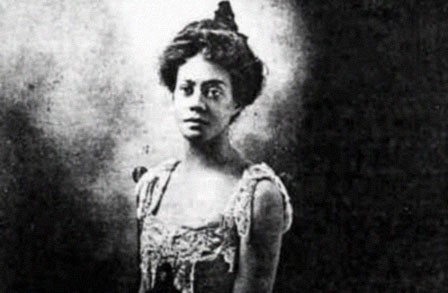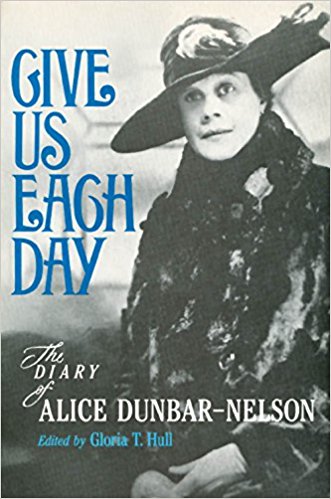For Women’s History Month, GO is celebrating LGBTQ women we wish we could have learned about in high school history class.
Born in 1875, Alice Dunbar-Nelson was the first generation of her family to be born free in the South after the Civil War. Her father was a seaman, her mother a seamstress and they lived amongst the Creole community of New Orleans before the turn of the century. It was extremely rare for African-Americans–especially African-American women–to go to college at the time, but Dunbar-Nelson graduated from Straight University and began teaching in the public school system in 1892.

In her free time, she wrote poetry and short stories, and her first collection, “Violets and Other Tales” (published in 1895) is often referred to as the first-ever short story collection ever published by an African-American woman. Dunbar-Nelson moved to Boston and then New York City, continuing her work as an educator and co-founding the White Rose Mission (“a “Christian, nonsectarian Home for Colored Girls and Women”). Her marriage to poet Paul Laurence Dunbar took her to Washington, D.C. a few years later, but she left the abusive relationship in 1902, moving to Wilmington, DE where she continued teaching and had a relationship with Howard High School principal Edwina B. Kruse. (For more on this part of her life, check out “Lyrics of Sunshine and Shadow The Tragic Courtship and Marriage of Paul Laurence Dunbar and Alice Ruth Moore” by Eleanor Alexander.)
Not long after Dunbar passed away in 1906, Dunbar-Nelson married and divorced again. This time, it was Henry A. Callis, a doctor and founder of the Alpha Phi Alpha fraternity at Cornell University. And despite her third marriage to poet and activist Robert J. Nelson in 1916, Dunbar-Nelson had relationships with activist Fay Jackson Robinson and artist Helene Ricks London, which were documented in her diaries as well as Gloria T. Hull’s “Color, Sex & Poetry: Three Women Writers of the Harlem Renaissance.”
Dunbar-Nelson’s writing became more of a focus in 1913 when she became the coeditor of the A.M.E. Review, a popular church publication, and went on to edit the progressive black newspaper the Wilmington Advocate in 1920, around the same time she became an activist, suffragette and noted figure in the Harlem Renaissance. Her writing (columns, essays, fiction and poetry) grew more political and she was a popular and opinionated voice in publishing. But because she was a woman, she was often denied pay for her work, which, she (of course) wrote about. She was also rejected by many publishers who thought her work was inaccessible.
Some of Dunbar-Nelson’s political activism included leading the Anti-Lynching Crusaders of Delaware in support of the Dyer Anti-Lynching Bill and directing the Democratic political campaign among black women from New York. She became a passionate public speaker and from 1928-1931 worked with the American Friends Inter-Racial Peace Committee to take their messages of racial and gender equality on the road.

Dunbar-Nelson kept diaries for most of her adult life, and after dying from heart trouble at the age of 60 in 1935, her private writing became available as part of the University of Delaware’s collection and published in book form as “Give Us Each Day: The Diary of Alice Dunbar-Nelson” in 1985. Her candid musings on being bisexual, biracial and a woman in the 19th century is an incredible piece of history that is only available because she documented her extraordinary life, pushing boundaries and tirelessly advocating for her communities. Some of her other works include a one-act play (“Mine Eyes Have Seen”) and pieces selected for anthologies such as “Masterpieces of Negro Eloquence” and “Caroling Dusk: A Collection of African-American poets.”

What Do You Think?